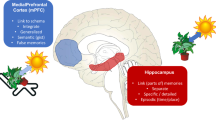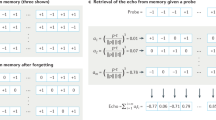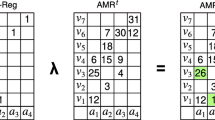Abstract
In his Henry Tizard Memorial Lecture, delivered at Westminster School on February 29, 1968, Professor Young discussed the increase of knowledge and its storage in the brain.
This is a preview of subscription content, access via your institution
Access options
Subscribe to this journal
Receive 51 print issues and online access
$199.00 per year
only $3.90 per issue
Buy this article
- Purchase on Springer Link
- Instant access to full article PDF
Prices may be subject to local taxes which are calculated during checkout
Similar content being viewed by others
References
Lenneberg, E., The Biological Foundations of Language (Wiley, 1967).
Geschwind, Norman, The Development, of the Brain and the Evolution of Language, Monog. Ser. on Languages and Linguistics, No. 17, Rep. Fifteenth Annual R.T.M. on Linguistic and Language Studies (1964).
Students and Politics, in Daedalus (American Academy of Arts and Sciences, 1968).
Encyclopaedia Britannica, 1967.
Author information
Authors and Affiliations
Rights and permissions
About this article
Cite this article
YOUNG, J. Memory and the Increase of Knowledge. Nature 217, 905–907 (1968). https://doi.org/10.1038/217905a0
Issue Date:
DOI: https://doi.org/10.1038/217905a0
Comments
By submitting a comment you agree to abide by our Terms and Community Guidelines. If you find something abusive or that does not comply with our terms or guidelines please flag it as inappropriate.



